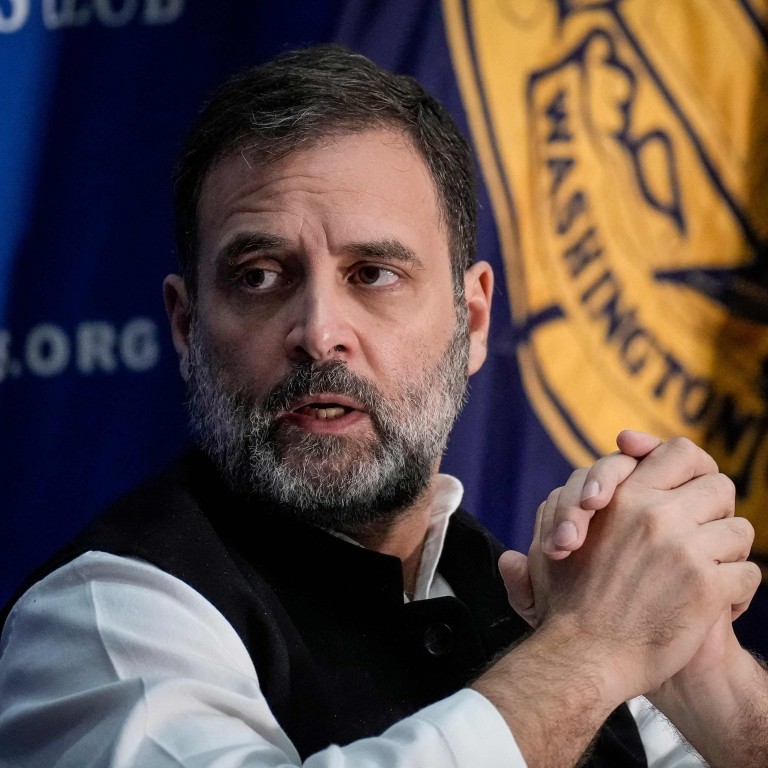
China-India relations next 5 to 10 years look ‘tough’, says top opposition leader Rahul Gandhi
- Comment by Indian National Congress Party chief comes as annual meeting of security-themed Shanghai Cooperation Organisation goes virtual-only
- Protracted border dispute casts long shadow over Beijing and New Delhi’s efforts to ease bilateral tensions
Rahul Gandhi, leader of the Indian National Congress Party and now on a three-city US tour, shared his observation at a Stanford University event in California on Wednesday when asked about the rival countries’ historically hostile ties.
“It’s tough right now,” Gandhi said, noting China had “occupied some of our territory”.
“It’s rough,” he added, before stating: “India cannot be pushed around. That is something that is not going to happen”.
Despite more than 17 rounds of Sino-Indian diplomatic and military talks over the past two years, last December hundreds of Indian and Chinese troops wielding spiked clubs and tasers engaged in fistfights in Arunachal Pradesh, a province in India’s northeast claimed by Beijing as “Zangnan”, which translates as southern Tibet.
China-India relations: Qin Gang pledges better dialogue to improve ties
“India wants to keep the SCO mechanism functioning, so an amicable solution to hold the summit virtually will save Modi and Xi from having the difficult chat about the military tensions at the LAC,” said Aadil Brar, a columnist for India’s ThePrint and a visiting scholar at National Chengchi University in Taipei. The LAC, or Line of Actual Control, is a disputed demarcation of territory claimed by both China and India.
“Xi knows quite well that he would be given a frosty reception by Modi if he had decided to travel in person for [the] SCO,” Brar said, adding that “Foreign Minister Qin Gang’s two recent visits to India weren’t exactly cordial”.
China’s moves to assert control on border risk further tensions with India
The Indian side described it as “abnormal” and “fragile”, as the Chinese foreign ministry readout called the situation “generally stable”.

